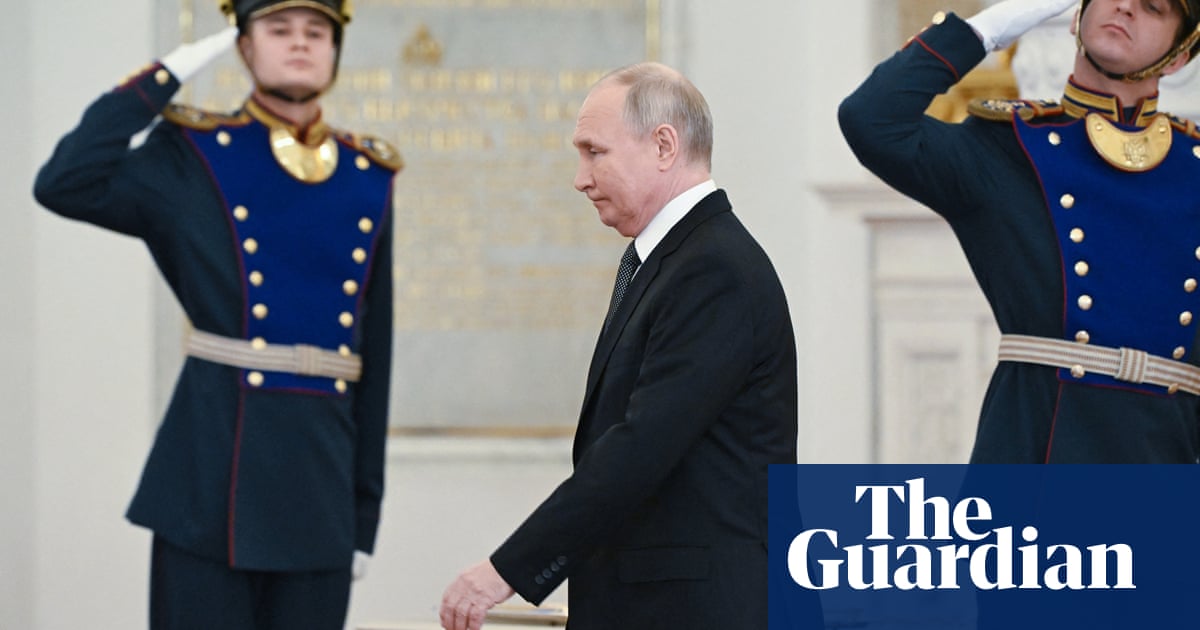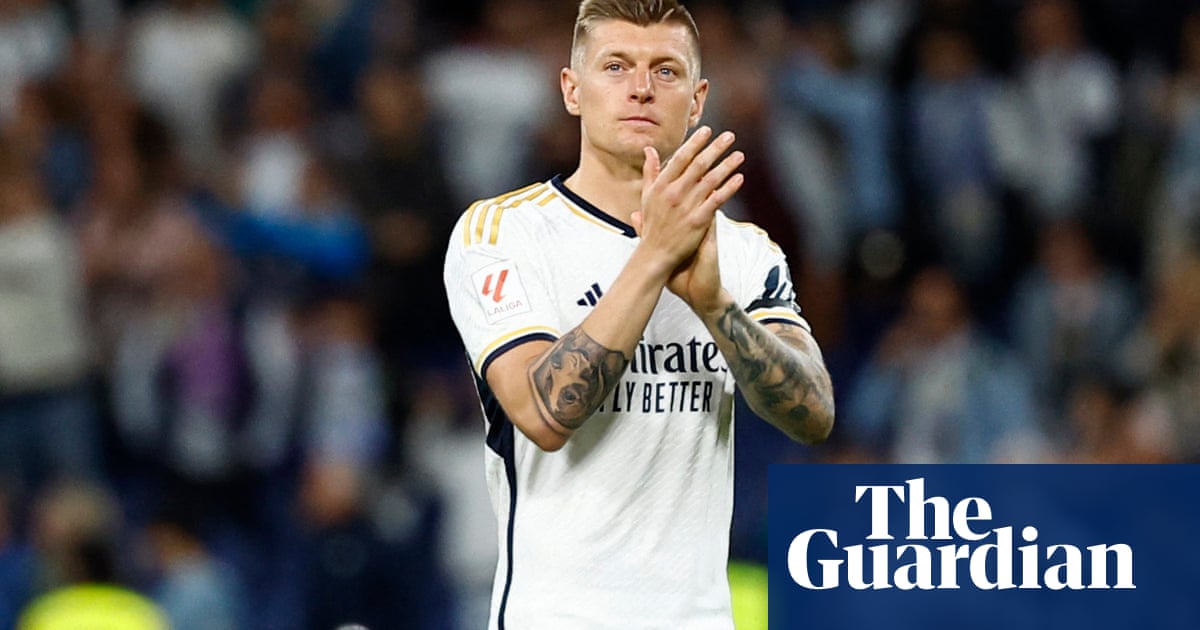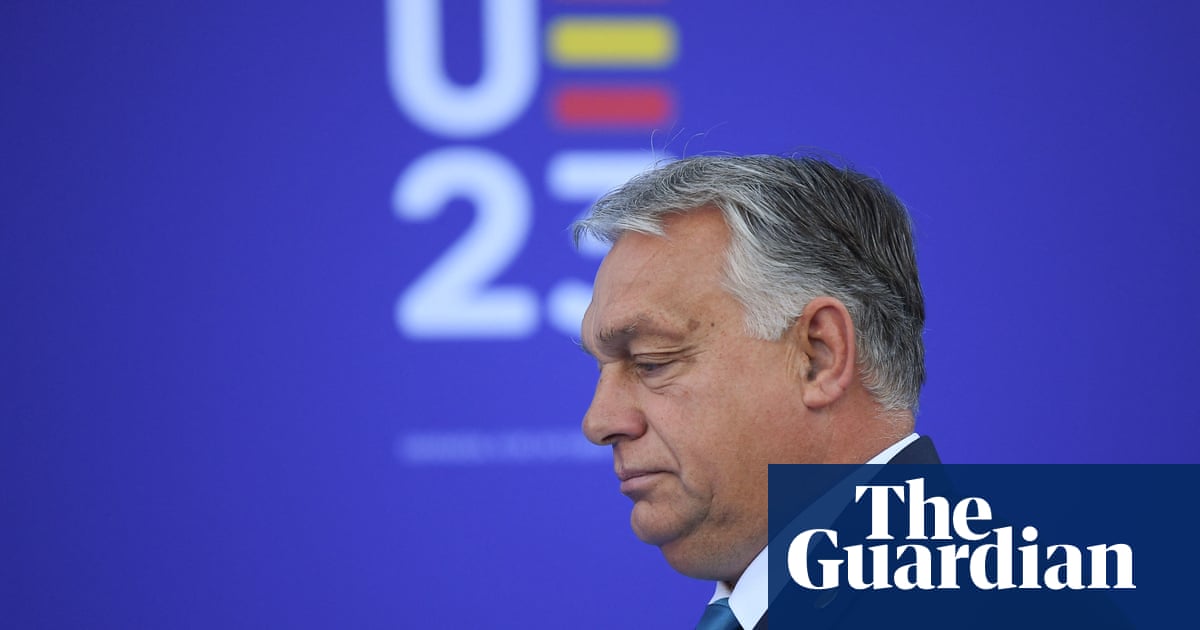
Toni Kroos sat down, smiled and made no apologies for arriving empty-handed. Should he not have brought farewell cakes with him? The curtain could fall any day now, after all. It was not hard to envisage that these, just two days out from Germany’s quarter-final tie against an exceptional Spain, could be his final public pronouncements as a professional footballer. “I’m not feeling nostalgic in the least,” Kroos deadpanned. “I don’t expect this will be my final match and I assume we’ll all be seeing each other again.”
The kuchen will have to wait and so, the host nation hopes, will the goodbyes. It was a shock when Kroos announced in May that, at 34 and seemingly with a few more years in the tank, he would retire this summer. He wanted to depart on a high and it gave his decision to have one last shot at international football, made three months previously, a fresh dimension. A European Championship medal has eluded him but there is a growing belief Kroos could ride into the sunset wearing one.
That journey will be made at some point in the next week and a half, however the rest of this tournament unfolds. “I’m fully aware of the fact that football will no longer play a key role in my life,” he said. “But I’m not afraid. I was the one who took the decision. Nobody had told me, even in veiled terms, that it was time to say goodbye. I will miss it because I still love the game, and I doubt I’ll find anything I can do as well as football. I’d rather pick the date myself, and not have it picked for me by other people.”
The precise moment will still, to a large extent, lie in the laps of teammates, opponents, officials and perhaps force majeure. But while Kroos refuses to treat every game as if it is his last, his performances have pulsated with a desire to control the narrative. His display in the destruction of Scotland will be difficult to top all summer; he has hardly stopped pulling the strings since, although Denmark had some joy in limiting his influence on Saturday. Kroos has generally called the shots and set the tempo, leaving some of his career’s most eye-catching work until last.
Perhaps on Friday Spain will look to stop him at source, too. “It wouldn’t be new to me,” he said, while expecting their main objective would be to dominate. A midfield battle for the ages could transpire if he and Rodri are both in fine nick. “It’s been my opinion for a long time that games like these are decided in the middle,” he said. “Whoever can control the game there will have a much better chance of winning. Both teams love possession, love having the ball.”
The Spain forward Joselu had said earlier on Wednesday yesterday that he hopes to “retire” Kroos, who was a colleague in Real Madrid’s Champions League-winning team last season. In reality, the pair are friends, but there is only one way to prevent further chirping. “Win: that’s a very short answer,” Kroos said. “I’ll do everything I can to prevent his wish from coming true.”
Whether or not Spain retire Kroos, one certainty is that Kroos will retire to Spain. He expects to run an academy in Madrid while enjoying family life with his wife and three children. In response to one question about his post-career plans, he jokingly issued the correction: “I have never worked!” Spanish journalists were given fluent answers in their mother tongue during his half- hour appearance; his decade at Real has been sensational and he was asked whether, in his opinion, he was better appreciated by the public there. The response was diplomatic: he feels understood everywhere, he said, however long it has taken.
Nobody inside Germany’s training base half an hour outside Nuremberg harbours any doubts about Kroos. The atmosphere here is businesslike but relaxed: visitors, employees and German football association staff whiz around on scooters while some of the players, ensconced in a sprawling facility set far back from the road into town, amuse themselves with games of chess.
A walk around brings vibes of business park, university grounds and futuristic science cult. The angles are clean and the architecture is sweeping, spare, functional. There are logos everywhere, but history rears up too: a statue of Adolf Dassler, depicting the Adidas founder mending an old boot, sits three minutes’ walk from where Kroos was sitting. So, on a huge red walkway, do footprints of Franz Beckenbauer and the current Germany player Thomas Müller.
Kroos, Müller and the rest of Germany’s old guard carry some burden from past failures, but the former believes they have already proved a point. “In the months leading up to Euro 2024, we were engulfed in major doubts about our ability,” Kroos said. “We’ve reached a minimum objective and, no matter how we play against Spain, people won’t talk of a catastrophe any more. But I wouldn’t say it is a bonus. We’ve reached a stage that leaves us kind of satisfied, but there’s a huge drive to go further. We’re convinced we can do it.”
If Germany succeed on 14 July, perhaps Kroos will finally receive the acclaim his body of work unquestionably deserves. The comfort, on hearing him, was that he will be at peace either way. “You can’t plan for a title,” he said. “It worked out well with Real Madrid and I’ll try it here too, without being devastated if it doesn’t work out. The goal when I returned was to become European champion.”
The shorter-term target is to, as a minimum, stretch out the farewell tour. There has to be a chance Spain will cut it short. “It goes through your head, but it doesn’t bother me,” said Kroos. “It’s a motivation to think that it’s not the last game. I’ll be happy without football but I hope I can hold out a little longer.” Bavaria’s finest bakers can stand down for now.












